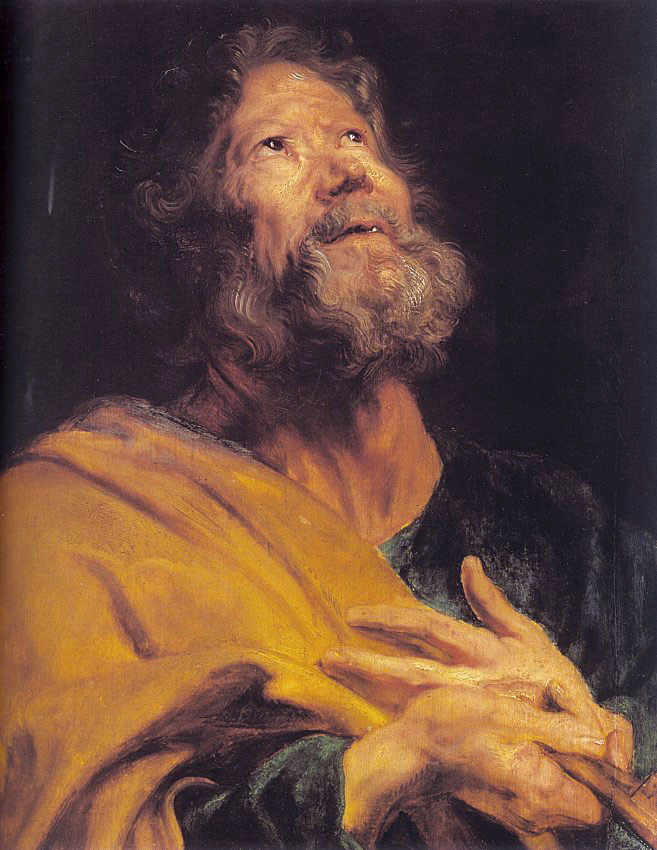Matthew 16:13-20 is a passage rich in figures of speech and meaning within the ancient (Koine) Greek language. The exegesis of the passage is fully confirmed by other passages of scripture, thereby giving us confidence of the interpretation. Scripture interpreting scripture is always the best course of action.
In the following we will look at each of the verses and then develop a summary conclusion.
Verse 13: Jesus had just fed the 4000 and departed by ship to the shores of Magdala (Matt 15:39). The Pharisees and Sadducees met Him and tempted Him asking for a sign from heaven (Matthew 16:1). Jesus rebuked them and when His disciples arrived (vs 5) he warned them using a figure of speech known as hypocatastasis, (Bullinger, E. W. Figures of Speech Used in the Bible, Grand Rapids, Michigan, Baker Book House, 1988, p. 745), to take heed and beware of the leaven (doctrine) of the Pharisees (vs 11-12). Then as He and His disciples traveled north from Magdala to the coasts (borders) of Caesarea Philippi, a region dominated by paganism, He asked them “Whom do men (men is a synecdoche of the species (Bullinger p. 624), meaning human being whether male or female) say that I the Son of man am?”.
Verse 14-15: His disciples reply that He is viewed by some as John the Baptist, Elijah, Jeremiah or one of the other prophets. Then Jesus asks his disciples the question that they and we must all answer as believers; “But whom say ye that I am?”.
Verse 16: Peter then answers the question “Thou art the Christ, the Son of the living God”. This is the same confession made by the Ethiopian (Acts 8:37) and the Romans (Romans 10:9-10).
Verse 17: Jesus answered Blessed (someone who has divine favor) art thou Simon Barjona (Son of Jonas) for flesh and blood (Synecdoche of the part indicating humankind) (Bullinger p. 644), hath not revealed this unto thee but my Father which is in heaven”.
Verse 18: Jesus further says “And I say unto thee that thou art Peter (Greek word Petros meaning a piece of rock or stone). This word is one used in ancient literature as a stone that is thrown. Also, the word need not have other significance since it was the name of Cephas from the beginning of his role as an apostle (John 1:42).
“And upon this rock (Greek word Petra meaning massive rock) I will build my church”. Rock in this sentence is a metaphor (Bullinger p. 304), used for the confession of Peter that Jesus is the Christ. The church was to be built by Jesus and it belongs to Him. It is further noted that the word church is singular in this passage. There is one Church (Col 1:18, 1 Cor 12:13). While some have said that this passage teaches that Peter is preeminent and is the foundation upon which the Church is built, the language forbids it. Further, elsewhere in the scripture Jesus is described as the foundation 1 Cor. 3:11).
Bullinger sums this up nicely “petros represents Peters instability and uselessness as a foundation while petra represents Christs stability as the foundation which God Himself has laid” (Bullinger pp. 304-305), Logically speaking if Jesus was not the Christ and Son of the living God, as per Peter’s confession, there would be no need for the church.
“And the gates of hell (Greek word hades meaning the region of departed spirits both good and evil). Gates in this phrase is a metonymy of adjunct (Bullinger, E.W., Companion Bible, London, England, Trinitarian Bible Society, 1910, Matthew 16:18 Note, p. 1346) representing the power of death and the underworld. It is also considered by some as a euphemism or softening of the subject under consideration. By this Jesus is simply affirming that His kingdom is unstoppable by any force whether in the material or spiritual world. The kingdom will not be stopped by death and certainly not by the devil or his angels. (John 5:28-29; Matt 25:41)
Verse 19: “And I give unto thee the keys of the kingdom of heaven”. This phrase is a metonymy of cause (Bullinger, Companion Bible, Matthew 16:19 Note, p. 1346) representing the power of the gospel to open the Kingdom (Church) to all mankind. While some believe this was an exclusive promise to Peter, thereby giving him preeminence, that is contrary to the rest of the scripture. All of the apostles were promised power (Acts 1:8) and all participated in preaching the gospel on the day of Pentecost (Acts 2:4). In addition, all of the apostles were asked by the convicted hearers “what shall we do”? (Acts 2:37). We simply have Peters sermon and responses recorded. It is noted that Peter was the first to take the gospel to the Gentiles (Cornelius Acts 11:13-14) however it was the Apostle Paul who was chosen to take the gospel to the gentile nations (Acts 9:15-16).
“And whatsoever thou shalt bind on earth shall be bound in heaven (Greek perfect tense – process that has taken place in the past- already been bound) and whatsoever thou shalt loose on earth shall be loosed (perfect tense as above) in heaven”. This phrase is a metonymy of adjunct indicating the exercise of authority to permit or forbid (Bullinger pp. 569 and 606). The power to bind that which had already been bound is consistent with the scripture in John 16:13 where we are told that the Spirit would not speak of Himself but what He shall hear that shall He speak. On the day of Pentecost, the apostles began to speak as the “Spirit gave them utterance” (Acts 2:4). That which they spoke was from heaven.
Verse 20: Then charged He His disciples that they should tell no man (Synecdoche of the species meaning mankind both male and female) (Bullinger p. 624), that he was Jesus the Christ. The meaning of this, referring back to the confession of Peter, is to tell not one man or woman that He was the Christ because His time to be sacrificed had not yet come.
Summary: The passage under consideration is filled with figures of speech all pointing to the establishment of the one Church belonging to Christ. The gospel message would open the doors to the kingdom through the inspired apostles and nothing in this life or in the netherworld could stop it. Nothing could stop the kingdom from being established and it will be here until the end (1st Cor 15:24).
With reference to the false notion that Peter was somehow given preeminence, it should be noted that at this time Peter was yet to deny Christ (Mark 14:29-30) and was in need of change/conversion (Luke 22:31-32). In this regard the instability of “a stone” as referenced above may be appropriate.
Further if Peter was preeminent the rest of the Apostles certainly didn’t know it for the authority to bind and loose had been given to all of them (Matt 18:18-20; Acts 2:4). They were also asking who was the greatest and what position they would hold in the kingdom (Matt 18:1; Matt 20: 20-24). It is also observed that the Apostles sent Peter and John to Samaria indicating that they were collectively in charge (Acts 8:14). It is also noteworthy that the apostle Paul rebuked Peter to his face before them all (Gal 2:11-14) and stated that he, himself, was not a whit behind the very chiefest apostles (2nd Cor 11:5).
Simply stated, there is no evidence in this passage or the remainder of the scripture indicating that Peter had a superior role to the rest of the Apostles. He was nothing more or less than an Apostle of the Lord Jesus Christ.
How God Saves – Keep the Faith

